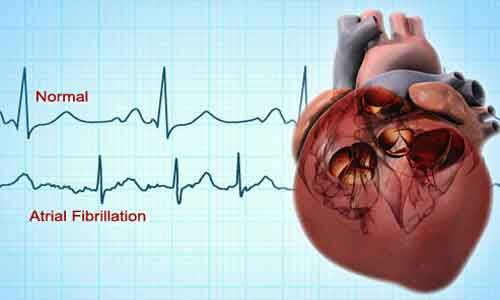- Home
- Medical news & Guidelines
- Anesthesiology
- Cardiology and CTVS
- Critical Care
- Dentistry
- Dermatology
- Diabetes and Endocrinology
- ENT
- Gastroenterology
- Medicine
- Nephrology
- Neurology
- Obstretics-Gynaecology
- Oncology
- Ophthalmology
- Orthopaedics
- Pediatrics-Neonatology
- Psychiatry
- Pulmonology
- Radiology
- Surgery
- Urology
- Laboratory Medicine
- Diet
- Nursing
- Paramedical
- Physiotherapy
- Health news
- Fact Check
- Bone Health Fact Check
- Brain Health Fact Check
- Cancer Related Fact Check
- Child Care Fact Check
- Dental and oral health fact check
- Diabetes and metabolic health fact check
- Diet and Nutrition Fact Check
- Eye and ENT Care Fact Check
- Fitness fact check
- Gut health fact check
- Heart health fact check
- Kidney health fact check
- Medical education fact check
- Men's health fact check
- Respiratory fact check
- Skin and hair care fact check
- Vaccine and Immunization fact check
- Women's health fact check
- AYUSH
- State News
- Andaman and Nicobar Islands
- Andhra Pradesh
- Arunachal Pradesh
- Assam
- Bihar
- Chandigarh
- Chattisgarh
- Dadra and Nagar Haveli
- Daman and Diu
- Delhi
- Goa
- Gujarat
- Haryana
- Himachal Pradesh
- Jammu & Kashmir
- Jharkhand
- Karnataka
- Kerala
- Ladakh
- Lakshadweep
- Madhya Pradesh
- Maharashtra
- Manipur
- Meghalaya
- Mizoram
- Nagaland
- Odisha
- Puducherry
- Punjab
- Rajasthan
- Sikkim
- Tamil Nadu
- Telangana
- Tripura
- Uttar Pradesh
- Uttrakhand
- West Bengal
- Medical Education
- Industry
Atrial fibrillation and stress have bidirectional relationship, finds study

Stress has been linked with poor health outcomes, though the exact mechanism remains poorly defined. Psychological stress is recognized as a contributing factor in atrial fibrillation (AFib), both in initiation and heightening of AFib. The diagnosis of AFib is often associated with increased anxiety, psychological distress and suicidal ideation. In a review paper published today in JACC: Clinical Electrophysiology, potential mechanisms linking stress and AFib and the possible use of stress reduction in AFib management are explored.
Atrial fibrillation is an irregular and often rapid heart rhythm that can lead to blood clots forming in the heart. People diagnosed with AFib are at increased risk of stroke, heart failure and other heart-related complications. AFib is the most common arrythmia worldwide. There is significant global variation in people reporting psychological stress, but on average it is reportedly experienced by 1 in 3 people. The authors define stress "as the perception of internal or external demands which exceeds one's aptitude for an adaptive response." Reported stress levels have been on the rise annually with the COVID-19 pandemic leading to an even larger increase in self-reported psychological distress.
"We are seeing that psychological stress and even negative emotions are associated with initiation and potentiation of AFib," said senior study author Peter Kistler, MBBS, PhD, Head of Clinical Electrophysiology Research at Baker Heart and Diabetes Institute and Head of Electrophysiology at the Alfred Hospital in Melbourne, Australia. "By recognizing stress as a potentially modifiable risk factor in these patients builds on a more holistic approach to AFib management. As such, targeted stress reduction may improve symptom perception and outcomes for patients with AFib."
The researchers examined studies on the role of stress in AFib, as well as modifying traditional AFib risk factors such as diet, alcohol cessation and exercise. The review also focuses on the bidirectional nature of the AFib and stress relationship. The study authors looked at the role of acute and chronic stress in inducing AFib; the role stress plays on physiologically changing the heart; gender differences in response to stress; as well as how to measure stress, which is often subjective and self-reported.
"We also have to better consider the bidirectional nature of stress and AFib. More and more studies are showing it goes both ways," Kistler said. "Stress begets AFib and AFib begets stress. When we are managing AFib patients, clinicians tend to focus on the physical symptoms of AFib and not fully consider both baseline and evolving mental health consequences of having a heart rhythm disorder."
According to the review, stress and negative emotions are often accompanied by modifiable risk factors. For example, individuals experiencing chronic stress often report higher numbers of smoking, alcohol consumption, weight gain and physical inactivity. The risk factors contribute to worsening AFib symptoms in patients. Potential treatment options to reduce stress as part of AFib management included further study into anxiolytic and antidepressant therapy, mindfulness-based stress reduction and yoga.
"Clinicians must recognize and address the psychosocial implications of an AFib diagnosis by providing patient education and reassurance in tandem with conventional interventions to reduce symptoms and improve quality of life," Kistler said. "By considering the impact of stress on illness perception, recognizing and mitigating stress may reduce symptoms and distress, enhance resilience and modify health behaviors to improve outcomes."
The authors conclude further research is needed to establish standardized methods of detecting and quantifying stress, while randomized trials are needed to better evaluate the impact of stress reduction on AFib management.
https://www.sciencedirect.com/science/article/abs/pii/S2405500X21010872?via=ihub
Hina Zahid Joined Medical Dialogue in 2017 with a passion to work as a Reporter. She coordinates with various national and international journals and association and covers all the stories related to Medical guidelines, Medical Journals, rare medical surgeries as well as all the updates in the medical field. Email: editorial@medicaldialogues.in. Contact no. 011-43720751
Dr Kamal Kant Kohli-MBBS, DTCD- a chest specialist with more than 30 years of practice and a flair for writing clinical articles, Dr Kamal Kant Kohli joined Medical Dialogues as a Chief Editor of Medical News. Besides writing articles, as an editor, he proofreads and verifies all the medical content published on Medical Dialogues including those coming from journals, studies,medical conferences,guidelines etc. Email: drkohli@medicaldialogues.in. Contact no. 011-43720751


